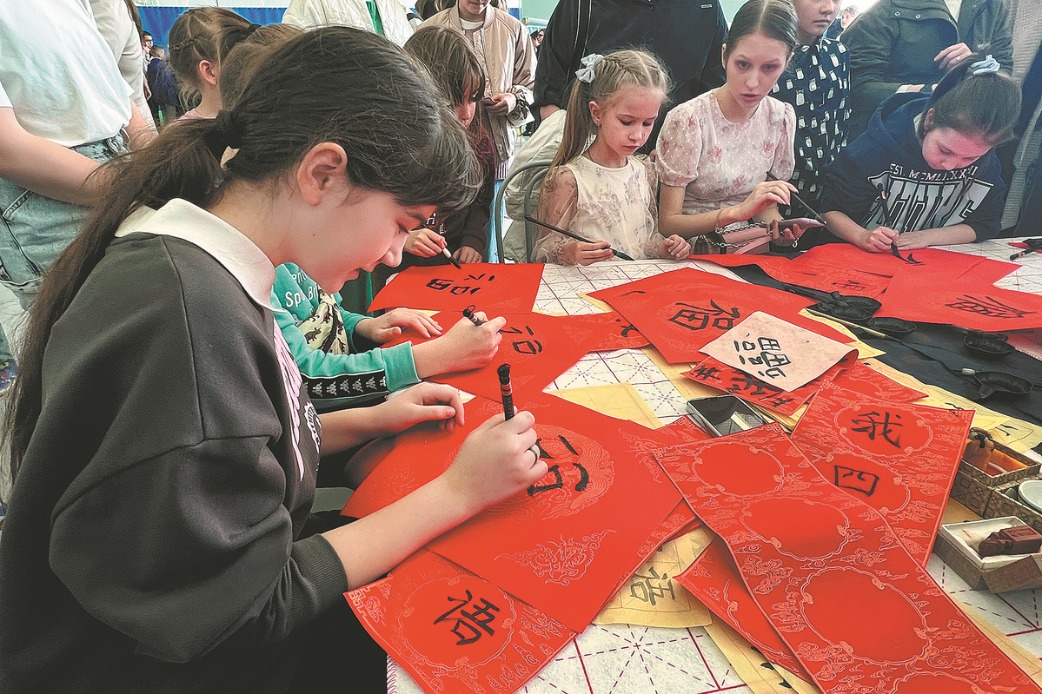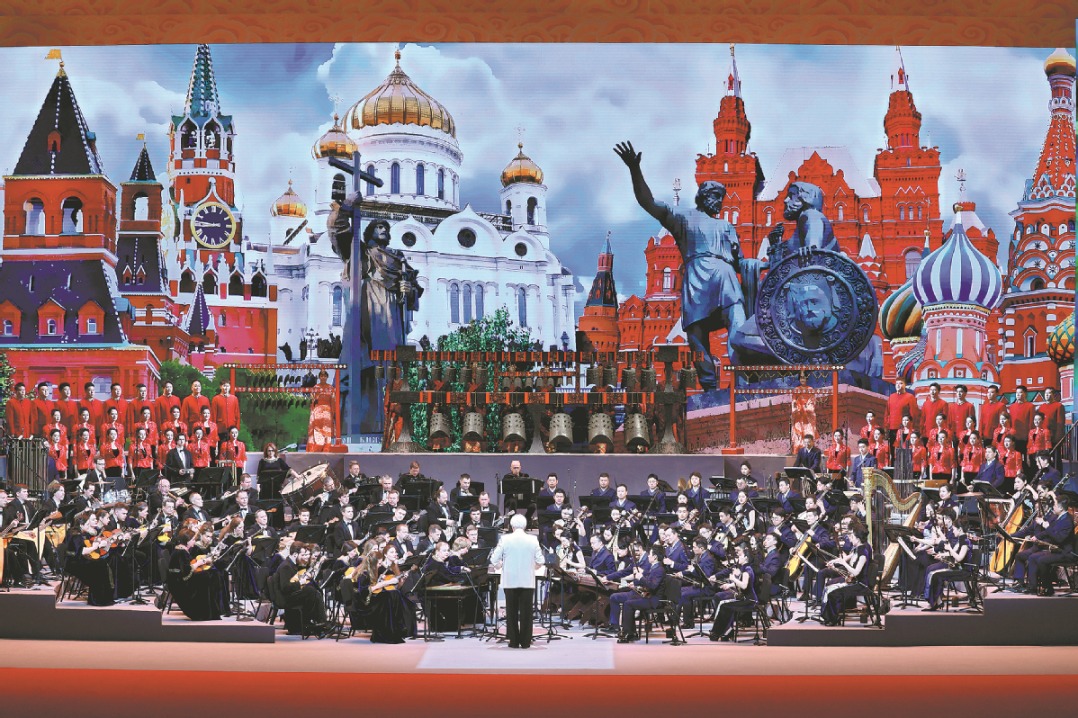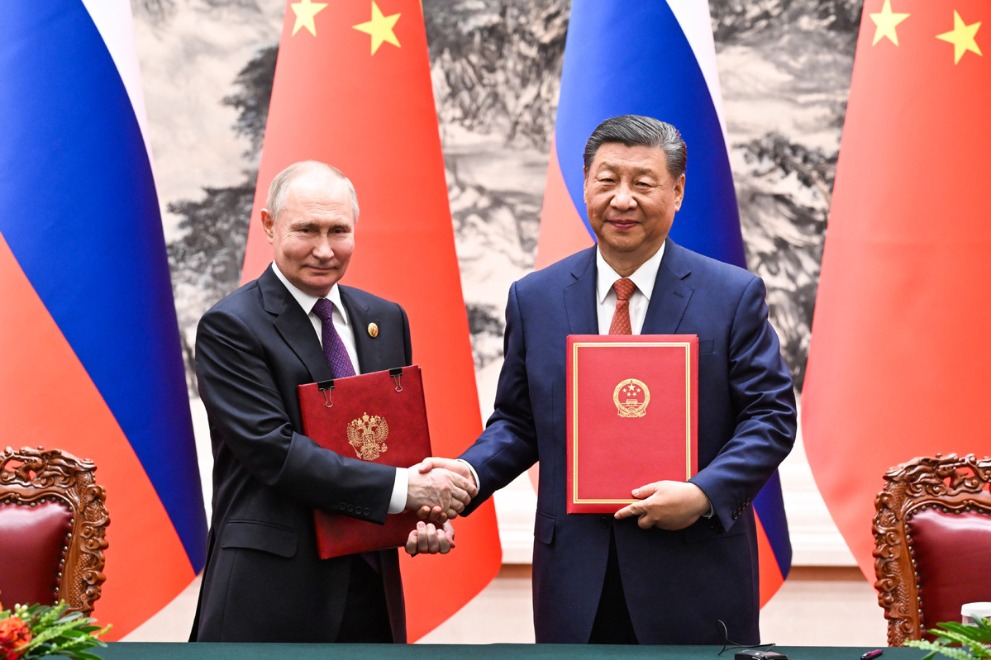Brazilian sees Wuhan model as pandemic example
By ZHOU LIHUA,LIU KUN in Wuhan and LI HONGYANG in Beijing | CHINA DAILY | Updated: 2021-06-24 09:46

For the past two months, Renato Peneluppi, a Brazilian living in Wuhan, capital of Hubei province, and an episode of a documentary series named A Corrida Das Vacinas that he participated in, have been in the media spotlight.
The episode showed Wuhan residents getting vaccinated against COVID-19 and random interviews asking what they thought of the vaccines.
At the end of the clip, Peneluppi says that everyone understands the importance of keeping themselves healthy and protected even though China now has few cases.
The series is a joint production between Wuhan Plus, the Wuhan Broadcasting and Television Station's foreign language channel, and Globoplay, the biggest online media platform in Brazil, with monthly views of 400 million.
"I am proud to have taken part in this documentary to have shared my experiences in Wuhan. I believe we can show the world a message of hope, that it's possible to overcome the virus and return to normal life," Peneluppi said.
"At the beginning, I didn't want to appear in front of the camera to say this. But I changed my mind later, because I felt it was necessary for me to emphasize to the people in my country that vaccines are important," he said.
A Twitter user named Helena Vacinaja commented: "What a documentary. Excellent job! And Wuhan? What a beautiful and vibrant city!"
Peneluppi got his second shot in June in Wuhan.
"I got the shot because, as the Chinese government says, it is good for us and shows responsibility for others," he said.
The 39-year-old came to Wuhan in 2010 and got his master's and doctor's degrees in public administration from the Huazhong University of Science and Technology.
He met his wife, who comes from Belarus, in Wuhan.
His parents who have been to China three times, like the country and support his decision to stay.
"China is my second home. I was destined to come to Wuhan because when I first saw a world map when I was 5, my finger randomly fell and pointed at the city," he said.
Peneluppi said he is interested in China's political and economic systems, whose advantages were demonstrated during COVID-19 control and treatment.
"China's systems revolve around serving the people. Without taking this into consideration, there is no need to discuss politics and economics."
At the invitation of his then girlfriend, Peneluppi left Wuhan for Belarus during the 2020 Spring Festival Holiday and didn't return until October.
"But I was following the news in the city. I knew of Leishenshan, Huoshenshan and Fangcang hospitals, and that doctors gathered in Hubei from all across China," he said.
He added that during the pandemic in China, people helped each other by following the government's guidance.
"The Chinese government promptly adopted strict measures to contain the spread of the virus.
During the pandemic, community workers helped my friends who stayed in Wuhan safely purchase and deliver food. It touched me a lot," he said.
After the pandemic, people are more careful about the virus, and it is good to see that masks and temperature checks are everywhere in the city, he added.
He attributed the swift control of the pandemic to the country's recourse to science and technology, including the use of infrared thermometers at the entrance of office buildings and the introduction of QR code registration for entry and exit elsewhere.
"I am deeply impressed that Wuhan is so modern, which creates a real sense of security among its people.
"Despite the outbreak of COVID-19, the city's development has been maintained. Also, the vaccination program in Wuhan is good and well-arranged," he said.
However, the pandemic abroad worries him.
"I want to introduce China's political system and economic model to more people by writing a paper that analyzes the various measures taken by the Wuhan government," he said.
"Wuhan is the thoroughfare of nine provinces. I think China can be more deeply understood, as metropolises like Beijing, Shanghai and Guangzhou of Guangdong province have already been widely promoted and are well-known," he said.
Peneluppi had planned to stay in Wuhan for two years after graduation but now says he is going to stay for another 10.
"I want to be a bridge to help China and Brazil understand each other," he said.
























